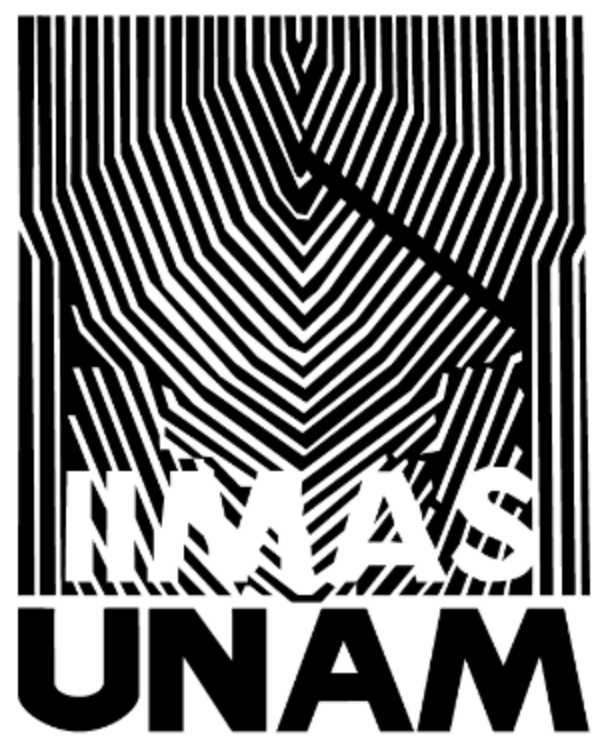Second Workshop on the Future of Co-Creative Systems
An ICCC’21 Workshop
- Schedule
- •
- Topics
- •
- Submissions
- •
- Dates
- •
- Organizers
Over the last few years, as computational creativity systems become more applied and usable, co-creativity has become a key focus for computational creativity researchers. This workshop aims to bring together researchers to discuss human–computer co-creativity from a range of perspectives.
The workshop will take place online, as part of the International Conference on Computational Creativity, on September 14-18, 2021.
To access the workshop, please login to Underline (https://underline.io/events/178/reception), navigate to the schedule and click the workshop name. On the page you will see a direct link to our Zoom session.
Schedule
Due to the compelling pandemic situation we have had to roll back our initial plan to hold a continuous event with several sessions across different time zones. There will be one session in this years workshop. The session is held on the 14th of September 12:00-15:00 UTC. Session times underneath are presented in the 24 hours format. Please consult the UTC time zone column when transferring the schedule to your own time zone.
|
Duration |
UTC |
Mexico |
|
|
Welcome |
10 minutes |
12:00 |
7:00 |
|
Jingoog Kim and Mary Lou Maher: Evaluating the Effect of Co-Creative Systems on Design Ideation |
15+10 minutes |
12:10 |
7:10 |
|
Jeba Rezwana and Mary Lou Maher: COFI: A Framework for Modeling Interaction in Human-AI Co-Creative Systems |
15+10 minutes |
12:35 |
7:35 |
|
Break |
15 minutes |
13:00 |
8:00 |
|
Janin Koch, Prashanth Thattai Ravikumar and Filipe Calegario: Agency in Co-Creativity: Towards a Structured Analysis of a Concept |
15+10 minutes |
13:15 |
8:15 |
|
Haizi Yu, James Evans, Donna Gallo, Adam Kruse, William Patterson and Lav Varshney: AI-Aided Co-Creation for Wellbeing |
15+10 minutes |
13:40 |
8:40 |
|
Break |
15 minutes |
14:05 |
9:05 |
|
Discussion |
30 minutes |
14:20 |
9:20 |
|
Closing |
10 minutes |
14:50 |
9:50 |
Topics
We invite participants to write short overviews on on-going work with human-computer co-creative systems, short position papers addressing important questions for the field or new perspectives to discuss, and descriptions of projects within a research group. Potential areas of interest include: studies of creative practice; creative ideation and development as a collaborative and socially structured search process; user-experience research; explainable AI; the integration of existing algorithms into co-creative applications; conversational interfaces; evaluation of co-creative systems; ethics of human-computer co-creativity; communication within human-computer co-creative systems; and co-creativity in specific application areas.
We are particularly interested in
(i) open questions in co-creativity research,
(ii) finding a common language for co-creativity research.
(iii) theories of computational co-creativity
Submissions
Attendees may submit short papers (4 pages max). Submissions should cover existing work that deploys or studies co-creativity (including the study of collaborative creativity amongst people, where this can be applied to computational co-creativity), radical ideas and design visions and theoretical questions.
Submissions should address one or multiple of the workshop topics to some extent, and should be focused on ideas that can generate discussion and ideation.
[Update 16th of August, 2021]
New information on the camera ready submissions has been sent to the authors of the accepted papers directly.
The workshop proceedings will be published in the CEUR Workshop Proceedings (http://ceur-ws.org/) together with other ICCC workshop proceedings.
Please use the CEURART style for your submission. It can be downloaded from http://ceur-ws.org/Vol-XXX/CEURART.zip
If your paper is accepted, you will be required to physically sign and scan an author agreement. The format of the agreement depends on whether you include third party material in your paper. If you use third party copyrighted material, please be prepared to accompany the agreement with a copy of permission granted by the third party. You can familiarize yourself with the agreements here:
http://ceur-ws.org/ceur-author-agreement-ccby-ntp.pdf?ver=2021-02-12
http://ceur-ws.org/ceur-author-agreement-ccby-tp.pdf?ver=2021-02-12
Submit your manuscript through Easy Chair following double blind review principles. We reserve the right to desk reject incorrectly anonymized papers, and papers that are not formatted according to the provided template, as well as accepted papers whose authors are unable to submit the author agreement by the camera ready date.
Important Dates
- Submissions due: UPDATED June 21st, 2021 (was May 30th, 2021)
- Acceptance notification: UPDATED July 19th, 2021 (was June 15th, 2021)
- Camera-ready papers due (Incl. Author agreement!): UPDATED August 2nd, 2021 (was June 30th, 2021)
- Workshop: UPDATED September 14th, 2021
Organizers
- General chair: Anna Kantosalo, Aalto University
- Paper chair: Prashanth Thattai Ravikumar, National University of Singapore
- Paper chair: Ollie Bown, University of New South Wales
- Communication’s chair: Kazjon Grace, University of Sydney
- Tapio Takala, Aalto University
- Mary Lou Maher, University of North Carolina at Charlotte
To contact the organizers please send an email to anna.kantosalo @ aalto.fi.


